WP4: Political Economy, Institutions, and Development
Objectives
- To find the limitations of international climate policies.
- To better understand the nature of domestic climate policies and institutions.
- To improve understanding of the key roles of developing countries in future energy and climate policies.
- To build new theoretical foundations for distributional and ethical concerns related to climate change models.
- To integrate approaches to environmental investment and finance under risk and uncertainty.
Task 1: International cooperation
Using game theory, this task investigates possibilities for and hindrances to cooperation in international environmental negotiations and coordination among international commitments on GHG emissions and national policies. On the policy level, this is closely linked with yearly UN Climate Change Conferences (COP) and utilizes the expertise of lawyers, political scientists and behavioural experts in the area of public policies and diplomacy.
Task 2: National and regional policies and institutions
We address public acceptability of policies and specific policy measures that might be influenced by individual factors (such as environmental concerns and values, subjective norms or perceived behavioural control), or by characteristics of the policy to be implemented. Both developed and emerging markets (China etc.) are considered. Since the external costs and the ancillary benefits cross national borders, we address the issue of economic standing in the determination of the social costs of carbon and air pollution damage in the policy decision-making process. Deep understanding of relevant public policies, regulations and institutions forms the necessary basis of this task.
Task 3: Mitigation, adaptation and economic development
Links between climate change policies and economic growth are analysed in this task, especially in the context of developing countries, including China. The role of innovation promoted by a climate policy is assessed with regard to its ability to foster growth. Wide connections with development economics are vital for the execution of this task.
Task 4: Inter-intra generation equity
This task explores the distributive consequences of climate change impacts and policies, both across and within generations. It also investigates discounting and the problems of time preferences and their development over time. It focuses on theoretical modelling mainly in economics with important connections to ethics and moral philosophy.
Task 5: Investment, finance and risk
This task explores private sector risk management strategies, risk assessment, tools to reduce risk and avoid vulnerability lock-ins, and the role of insurance. Many behavioural flaws related to risk perception and market failures (adverse selection, moral hazard) require policy interventions. Strong interaction with financial economics is a defining feature of this task.
Published results
Ambec, Stefan, F. Esposito, A. Pacelli. 2023. ‘The Economics of Carbon Leakage Mitigation Policies.’ Working Paper no 1408. Toulouse: Toulouse School of Economics.
Bianchi, Milo, Gang Wang, Zhengkai Liu. 2022. ‘Are We Becoming Greener? Life-time Experiences and Responsible Investment.’ Working paper no 4003445. Social Science Research Network.
Bretschger, Lucas, Evgenij Komarov. 2022. ‘All Inclusive Climate Policy: The Role of Human Health.' Working paper. Zurich: Center of Economic Research, ETH Zurich.
Bretschger, Lucas, Evgenij Komarov, Matthias Leuthard. 2023. ‘Overcoming the carbon trap: Climate policy and technology tipping.’ Working Paper 23/386. Zurich: Center of Economic Research, ETH Zurich.
Cahen-Fourot, Louison, Emanuele Campiglio, Louis Daumas, Michael Gregor Miess, Andrew Yardley. 2023. ‘Stranding Ahoy? Heterogeneous Transition Beliefs and Capital Investment Choices.’ Journal of Economic Behavior & Organization 216: 535–567.
Clark, Alex, A. Jindal, G. Shrimali, C. Han. 2023. ‘Capitalizing on coal: early retirement options for China-financed coal plants in Southeast Asia and beyond.’ Working paper 30. Boston: Global Development Policy Center, Boston University.
Clark, Alex. 2023. ‘Motives beyond markets: State ownership, stranded assets, and decarbonisation in the power sector.’ Ph.D. diss. Oxford: University of Oxford.
Gasparini, Matteo, Moritz Baer, and Matthew Ives. 2023. 'A Re-Evaluation of the Financial Risks of the Net Zero Transition.' Working paper no 4254054, Social Science Research Network (SSRN) Scholarly Paper, April 24.
Hernandez Carballo, Ieri, Matthew Ryan Sisco. 2024. ‘Examining the effects of gasoline prices on public support for climate policies.’ Nature Energy 9: 219–27.
Hernandez Carballo, Ireri. 2025. ‘Essays on Environmental and Energy Challenges.’ PhD diss. Bologna: Bocconi University.
Hernandez Carballo, Ireri, and Matthew Ryan Sisco. 2024. 'Examining the Effects of Gasoline Prices on Public Support for Climate Policies.' Nature Energy 9 (2): 219–227.
Janda, Karel, Binyi Zhang. 2022. ‘The impact of renewable energy and technology innovation on Chinese carbon dioxide emissions.’ Pp. 177-189. In Regulation of Finance and Accounting: 21st and 22nd Virtual Annual Conference on Finance and Accounting. Prague: Springer.
Janda, Karel, Binyi Zhang. 2022. ‘Econometric estimation of green bond premiums in the Chinese market.’ Working Paper 7/2022. Prague: Faculty of Finance and Accounting, Prague University of Economics and Business.
Janda, Karel, Anna Kortusova, Binyi Zhang. 2022. ‘Estimation of green bond premiums in the Chinese secondary market.’ Working paper 38/2022. Canberra: Centre for Applied Macroeconomic Analysis, Crawford School of Public Policy, Australian National University.
Janda, Karel, Evzen Kocenda, Anna Kortusova, Binyi Zhang. 2022. ‘Estimation of green bond premiums On the Chinese secondary market.’ Politická ekonomie 70(6):684-710.
Kočenda, Evzen, Michala Moravcová. 2023. ‘Frequency Volatility Connectedness and Portfolio Hedging of U.S. Energy Commodities.’ Working paper 4488110, Social Sciences Research Network.
Ndhlovu, Obrian, Edwin Muchapondwa. 2025. 'Zambia's Agricultural Input Support Programme: Estimating the Impact of the Voucher Delivery System on Crop Diversification.' Australian Journal of Agricultural and Resource Economics 69, 1: 1-20.
Schwarz, Moritz, Philippe Benoit, Alex Clark. 2023. ‘Decarbonising state-owned power companies: A framework for applying policy actions.’ Working Paper No. 23-01. Oxford: Oxford Smith School of Enterprise and the Environment, University of Oxford.
Ullrichova, Eliska. 2024. ‘New Intergovernmentalism: European Council and Environmental Policy.’ Journal of European Integration, October, 1–22.
In the news
Marshall, J. 2023. ‘Exploring EU Institutions.’ Auckland: Center for Climate Biodiversity and Society, University of Auckland.
Gray, Josh . 2025. 'Agricultural voucher systems can encourage crop diversification.' Environment for Development Initiative. 26 March.
